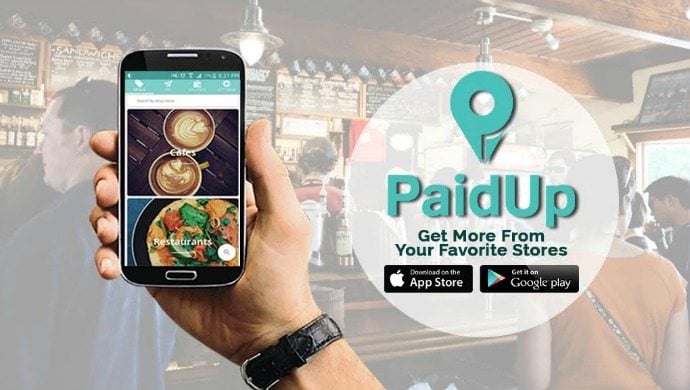
PaidUp helps Philippine SMEs crowdfund working capital from customers
By Sainul Abudheen K for e27
PaidUp is the story of a journalist who came to the Philippines to do a feature on social entrepreneurs; Eventually, he became an entrepreneur himself
UK-born journalist Asim Haneef had heard a great deal about the Philippines, and the stories always fascinated him. With over 100 million people, over 1.2 million small and medium enterprises (SMEs), high consumer culture, and an ever-increasing middle class, the country that he had heard about was a kind of wonderland of opportunities for him.
His intuition proved true when he arrived in the Philippines in 2015 to assess the feasibility of making a local version of a TV show about social entrepreneurs, which he had produced in Egypt.
“With widespread mobile phone usage and growth, prepaid card culture, and high percentage of young English-speaking population who are usually less technophobic and open to new tech products, I knew the Philippines offered vast opportunities for people like me, who have nursed an ambition to become a social entrepreneur one day,” said Asim, who has worked with leading TV channels like Al Jazeera in the past, as he spoke to me over the phone.

PaidUp Founder Asim Haneef
“It is a unique place in some sense: It has obvious poverty, inequality and entrenched challenges, but at the same time it has some of the most friendly, warm, honest, dedicated, optimistic and joyous people,” he added.
Haneef, however, realised that as a journalist, he had limitations in creating a practical impact on the people of the country. So he wanted to get into the habit of building things, not tearing things down — like some media publications do.
And that’s when he decided to delve into entrepreneurship.
“Building a tech company is something I had very little choice in, actually. I knew I wanted to create tools, change systems, test products, harness technology — so it sort of logically followed that I had to start somewhere. I wanted to build a valuable service that helps customers and businesses in different ways,” he said, as he narrated his lonely startup journey.
And fintech was his obvious choice, given the perfect blend of SMEs and a huge mobile phone population. “I believed in the great revolution of cash, which is inherently flawed and an expensive system. I think in future, people will be surprised that we carried metal and paper in our pockets and exchanged it with each other — just like music, and media and so much else. The future is cashless, money will be digital and mobile. We’ll use our phones to not just browse and text each other but pay for everything too. It feels inevitable to me,” Asim said.
PaidUp pays off
Haneef came up with the idea for his product, PaidUp, during his travels over the past few years working in the media as a TV producer, most recently in Egypt. At one point, he was making a reality TV show for social change, which focused on young social entrepreneurs in the Middle East. “I could see that small businesses were in need of new solutions to their challenges, and I then had an idea: What if there was a a service that enabled these SMEs to bypass the banks/conventional lending institutions and crowdfund working capital directly from their customers?”
Launched in November 2015, PaidUp is a mobile app that turns your phone into a prepaid digital wallet, enabling you to find, order and instantly pay for food, drinks and services ahead of time as conveniently as sending a text message.
For example, with the app, you can select a store, choose your lunch whilst still in the office, set a time, and have everything ready, cooked and prepared the moment you arrive — no standing in line, no waiting around and no need to bring any cash. Just the simple convenience of ordering your food in a few seconds.
“The app seeks to eliminate carrying cash by letting you pre-pay upfront and then letting you order on-the-go from your favourite stores before you arrive. So if you feel like having a coffee and you’re 10-mins walk away, simply choose your drink, select the time you’d like to pick-up — and your drink will be ready the moment you arrive,” he said as he explained the working model.

Asim claims PaidUp is the ‘Uber for food’, because of the way it lets customers order on the go.
The app also acts as a loyalty app by enabling customers to be rewarded for buying pre-paid credit from their favourite stores. For instance, you can load PhP 500 (around US$10) at a restaurant, and you’ll get PhP 600 (around US$12) added to your wallet — a free 100 peso (US$2) reward simply for paying upfront through the app. Every partner store offers free rewards for customers that pay upfront.
On the merchant/business side, the app enables micro-entrepreneurs and SMEs in developing countries to bypass banks and ‘crowd-fund’ working capital from their regular customers. PaidUp’s long-term plan is to help SMEs gain access to low interest credit by beginning to create a data history and credit scoring mechanism for the millions of businesses in Asia.
SMEs, the backbone with zero backing
“Enabling the growth and success of SMEs across emerging markets is, in my opinion, one of the most important things necessary to reduce global inequality, create more jobs and increase sustainable, inclusive economic growth for all,” Haneef told e27.
“Despite being well-recognised as the backbone of most economies and accounting for most of the jobs and GDP in developing countries, SMEs have tremendous, unfair disadvantages preventing them from growing and competing with the 1 per cent of biggest companies, namely getting access to affordable credit, leveraging technology and reaching new markets,” he continued.
As of today, 100-plus businesses in the food, drinks, coffee, hair & nail salons, beauty & wellness and spas have signed up with PaidUp. Currently, over 5,000 customers use the app.
With a single office in Manila, PaidUp now plans to expand into Singapore and India in 2017.
PaidUp is getting lots of interest for its disruptive product for angel investment, but Haneef is waiting for the right partner to come along. “We just made it to the final 25 in the new Singapore-based startup competition with a bunch of other companies. I believe we are the only one from the Philippines, all others are in India or Singapore — so it’s a great sign for us to be in the competition with them.”
It was also one of the eight top-tier startups that rocked Seedstars Manila in May this year.
Develop a ‘rhino skin’
Haneef believes building the company is the hardest thing he has ever done, but it’s also a tremendous blessing. “Nobody really knows what they’re doing until they are doing it — there’s a lot of advice and hype in startup world, I try my best to ignore the noise and just focus on making a service I can be proud of,” he said.
“You have to believe in yourself, trust your instincts, get hands-on, spend as little money as possible, don’t over-engineer product without validation and demand, think big, stay close to customers, be kind and don’t give up,” he said on being asked about the learning he has made.
“I often tell people that you have to develop rhinoceros skin, so that rejection doesn’t affect you since when you’re building something new like this, it’s expected to get rejected 100x a day and it’s important not to take it personally, — just keep going and stay positive above all else! Believe in the mission, yourself and your team — always remember it’s a blessing to be starting your own company. Despite the painful long hours and sacrifices, we are the lucky ones,” Asim concluded.
First appeared at e27





